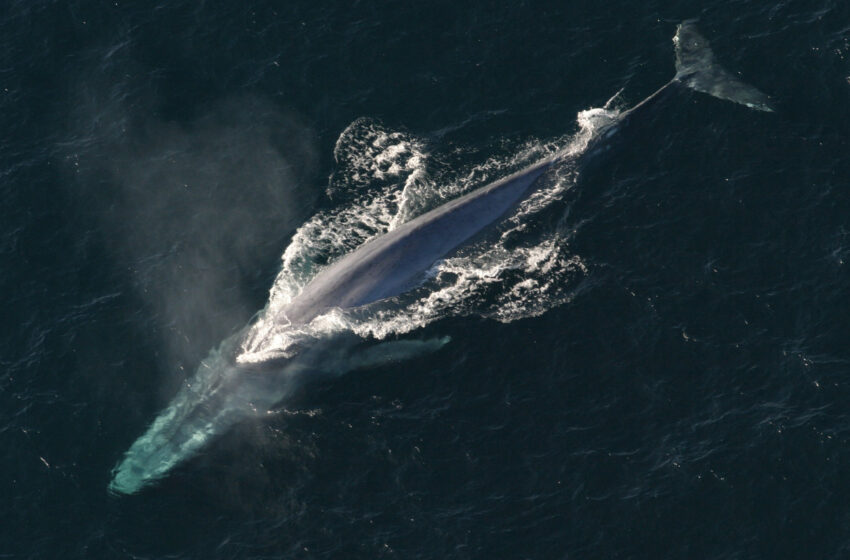Why are Blue Whales going silent? What researchers have to say

Credit: National Oceanic and Atmospheric Administration (NOAA)
In a striking new development, scientists have uncovered a troubling phenomenon in our oceans: blue whales, the largest animals on Earth, are going mysteriously quiet. A recent study has recorded a sharp decline in their vocalizations, particularly in Monterey Bay, California, raising alarms about potential disruptions in ocean ecosystems and a dire warning about environmental shifts.
A Sharp Drop in Blue Whale Songs: What the Study Found
A comprehensive analysis published in PLOS one has documented a significant reduction in blue whale calls, especially during the peak months of their presence in Monterey Bay. Comparing data from 2015–2016 and 2021–2022, researchers found up to 45% fewer vocalizations, a phenomenon that cannot be attributed to population decline alone.
Blue whales are known for their low-frequency songs, which can travel across vast ocean distances. These vocalizations serve as essential tools for navigation, feeding, and mating. Their sudden absence is prompting researchers to dig deeper into environmental variables that may be causing the silence.
Why Are Blue Whales Going Quiet? Experts Offer Theories
Several factors are under investigation. One of the leading theories suggests that changes in prey availability, such as a reduction in krill due to warming waters, may be discouraging whales from vocalizing during feeding periods. If food is scarce or harder to find, whales may conserve energy by reducing unnecessary activity, including singing.
Another potential culprit is underwater noise pollution. With increased human maritime activity, including shipping and offshore drilling, whales could be intentionally reducing calls to avoid acoustic interference or simply being drowned out by industrial noise.
Climate change is also believed to be a silent driver of this behavioral change. Altered water temperatures, shifting currents, and acidifying oceans can all affect the distribution of whale prey and, in turn, influence whale behavior.
Why This Matters: A Dire Warning for Marine Ecosystems
Blue whales are considered a keystone species in marine environments. Their behavior often reflects the broader health of ocean ecosystems. According to Dr. John Ryan, an oceanographer with the Monterey Bay Aquarium Research Institute, this decline in whale vocalization may be a signal of deeper environmental stress, one that could affect countless marine species.
“The silence of blue whales is more than just a scientific curiosity,” said Ryan. “It’s a call for urgent action on climate resilience and ocean conservation.”
READ ALSO
Did a California Aquarium collapse: Here’s what you should know
Fort Stewart shooting: What happened, who is suspect Quornelius Radford?
Monterey Bay: A Microcosm of a Global Concern
Monterey Bay has long been a vital feeding ground for blue whales. Its changing soundscape is now being seen as a microcosm of broader oceanic disruptions. While the whales may be adapting, the question remains: at what cost?
The implications of their silence stretch far beyond the California coast. Similar trends may already be occurring in other parts of the Pacific, Atlantic, and Southern Oceans, areas where blue whales have historically been most vocal.
Researchers plan to continue acoustic monitoring, broaden their data collection zones, and evaluate long-term trends. Public awareness and policy action are also crucial. Without a concerted effort to reduce ocean noise pollution and mitigate climate change, the world may lose more than just the songs of the blue whale, it could lose the balance of entire marine ecosystems.

